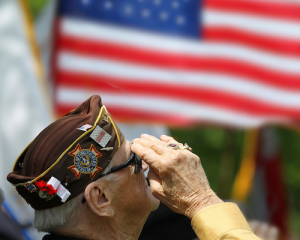Show Your Immense Gratitude

It can be complicated to say thank you to caregivers who see your senior at their most vulnerable, possibly even at their worst whether in an assisted living facility, nursing home or at home.
They carry on with diligent care despite the circumstances or challenges.
They do what you cannot.
They are helping you honor your senior through this season.
They give so much!
How can you thank them?
Whether your senior lives in an assisted living facility, a nursing home, a small adult family home or is at home with care help, I have several thoughtful gift ideas for you to give your senior’s caregivers.
Three group gift ideas
Some assisted living facilities or nursing homes have a policy that prevents individual staff members from accepting personal gifts. However, you can give a gift to the staff as a whole. If that’s your situation, consider these group gift ideas. (Packaged separately, each of these gifts provides minimal contact.)
- For about $28 you can send a box of 30 healthy snacks
- A beautifully packaged box of pears from Harry & David is a stylish surprise
- One dozen holiday bakery cupcakes (packaged separately) would be a fun treat
Five individual gift ideas
For smaller facilities, like adult family homes or individual caregivers, you have more options:
- A candle and a handwritten note that says: “What you do matters, thank you!”
- Some fun, nurse-themed socks.
- A card & little, framed poem that says thank you.
- A coupon to a food delivery service like Uber Eats or Grubhub would allow them to have a meal without having to cook or go out to pick it up.
- A gift card to a coffee/tea shop would surely be put to good use!
Find other gift ideas by reading Seven Fun Gift Ideas for the Senior Who Doesn’t Need Anything. Whatever you do, the most impactful gift is likely going to be the note you add expressing your heartfelt gratitude and appreciation. Be more than generous with your words; they will soak in and encourage your caregiver in the sweetest of ways.
May you find joy in loving one another well.


 One of our GoKit users found the perfect assisted living facility in Florida for her father. Although at over $4,000 per month, the payments were quite a burden. After a few months, she discovered that her father was eligible for a VA housing benefit of $2,000/month, which was retroactive to the time he moved in. While not every veteran is eligible for this benefit, the VA caregiver program expanded on October 1, 2020 to offer more services.
One of our GoKit users found the perfect assisted living facility in Florida for her father. Although at over $4,000 per month, the payments were quite a burden. After a few months, she discovered that her father was eligible for a VA housing benefit of $2,000/month, which was retroactive to the time he moved in. While not every veteran is eligible for this benefit, the VA caregiver program expanded on October 1, 2020 to offer more services.